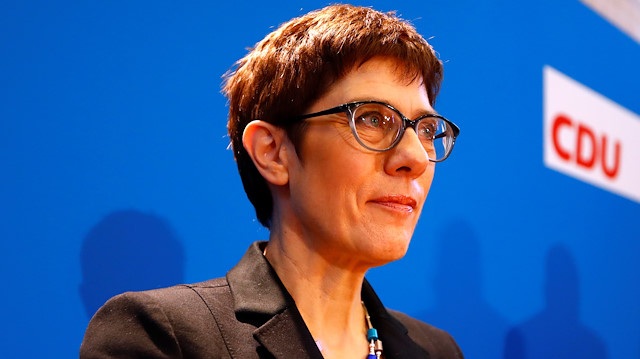

Chancellor Angela Merkel's protege, Annegret Kramp-Karrenbauer, addresses a news conference to promote her candidacy to succeed the German leader as chief of their conservative Christian Democrats (CDU) in Berlin, Germany, November 7, 2018.
Kramp-Karrenbauer's advantage over the other two candidates, Merz and Health Minister Jens Spahn, is that she has won an election - albeit in the small western state of Saarland - and served as state premier there.
She is on the CDU's left on economic policy, being a strong advocate of the minimum wage. Before the 2013 national election she suggested the top rate of tax be raised to 53 percent.
But she is conservative on social issues, opposing advertising for abortions, and caused controversy in 2015 by saying allowing same-sex marriages could open the door to incest and polygamy.
Vowing "not to pursue an election campaign against others", Kramp-Karrenbauer delivered a message of party cohesion and said that if she won the leadership she would seek to work with Merz and Spahn, who lags the other two candidates in polls.
Merz is chairman of the German arm of the U.S. hedge fund BlackRock, whose Munich offices prosecutors searched on Tuesday as part of Germany's largest post-war fraud investigation, a person with knowledge of the matter said. BlackRock says it is fully cooperating with the investigation covering the period of 2007-2011.
Merz took his role at BlackRock only in 2016 and has condemned illicit dividend stripping, but his role at the world's biggest fund manager risks reflecting poorly on him in socially-minded Germany.
In an election, Merz's right-wing pitch could draw back some CDU voters from the anti-immigration Alternative for Germany, which has gained from unease among some voters about the influx of more than 1 million asylum seekers since 2015.
Kramp-Karrenbauer is more likely to be able to form a coalition with the rising force in German politics - the Greens, now the second-strongest party.
#Annegret Kramp-Karrenbauer
#Germany
#Angela Merkel
#chancellor

